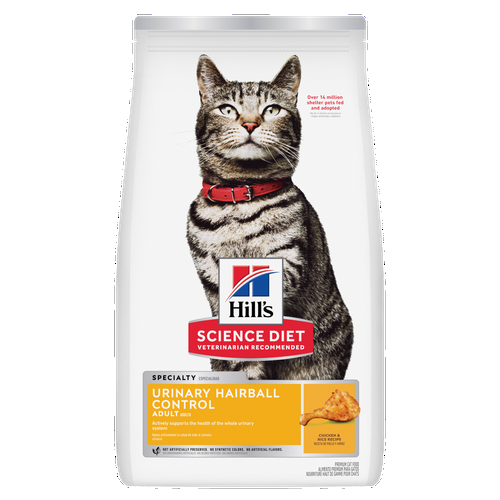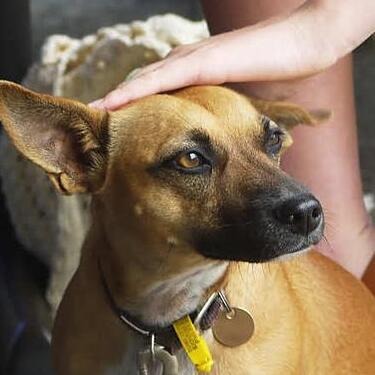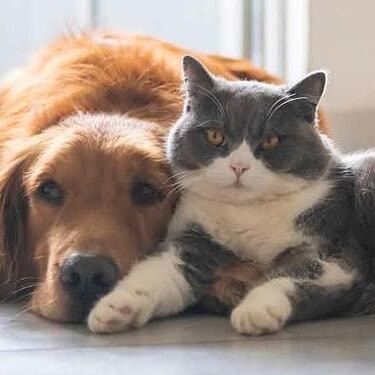
-
Find the right food for your petTake this quiz to see which food may be the best for your furry friend.Find the right food for your petTake this quiz to see which food may be the best for your furry friend.Featured products
 Adult Small & Mini Lamb Meal & Brown Rice Recipe Dog Food
Adult Small & Mini Lamb Meal & Brown Rice Recipe Dog FoodFor the faster metabolism of Small & Mini dogs
Shop Now Adult 7+ Small & Mini Chicken & Brown Rice Recipe Dog Food
Adult 7+ Small & Mini Chicken & Brown Rice Recipe Dog FoodFor the unique nutritional needs of mature Small & Mini dogs
Shop Now Hill's Science Diet Adult Oral Care Chicken, Brown Rice & Barley Recipe Dog Food
Hill's Science Diet Adult Oral Care Chicken, Brown Rice & Barley Recipe Dog FoodClinically proven kibble technology to reduce plaque & tartar build-up
Shop NowFeatured products Adult Urinary Hairball Control Chicken & Rice Recipe Cat Food
Adult Urinary Hairball Control Chicken & Rice Recipe Cat FoodActively supports the health of the whole urinary system
Shop Now Hill's Science Diet Adult Sensitive Stomach & Skin Dog Food
Hill's Science Diet Adult Sensitive Stomach & Skin Dog FoodHighly digestible recipe, gentle on stomachs. Nourishes skin & promotes a lustrous coat
Shop Now Adult Indoor Chicken Recipe Cat Food
Adult Indoor Chicken Recipe Cat FoodSupports energy level and beautiful fur in indoor cats
Shop Now -
Featured articles
 15 Pet-Friendly Cities Ideal for a US Road Trip
15 Pet-Friendly Cities Ideal for a US Road TripCheck out our list of pet-friendly U.S. cities that are excellent travel options, offering off-leash dog parks and pet-friendly restaurants & hotels.
Read More My Pet Ate a Lizard — What Should I Do?
My Pet Ate a Lizard — What Should I Do?Learn what to do if your pet eats a lizard, including whether they can be toxic and symptoms to keep an eye on when they've swallowed one.
Read More Easy DIY Dog & Cat Toys: Nine of Our Favorites
Easy DIY Dog & Cat Toys: Nine of Our FavoritesBrowse this comprehensive guide for several of our favorite DIY dog and cat toys that are sure to put a little pep in your pet's step.
Read More -


Cats are nature's classic carnivores, and although the vegetarian lifestyle is alright for your human family members, serving vegetarian or vegan cat food is not a good choice for your feline friend.
Considered "obligate carnivores," cats are genetically "obligated" to hunt other animals for their nutrition. Human vegans and vegetarians can balance a diet of veggies and live healthily, but this isn't always the case with cats. If you are feeding your cat a vegetarian or vegan dish—or just considering it—take a look at the following and be sure to consult with your veterinarian on your cat's specific needs.
Given the Choice...
Domesticated cats' ancestors were desert-dwelling predators, whose diets consisted of lizards, snakes, birds, rodents, and even some protein-containing insects. Even today's most domesticated house cats are often very skilled hunters—if they want to be.
When they do hunt their food, they eat the whole thing. The majority of this "catch" is digested for the energy a cat needs every day, whereas the rest is regurgitated in the hairball-style fashion you may know all to well. This is important because although your cat's "natural" eating habits don't come into play as often as they do for her wild relatives, they're the best way to keep her healthy unless your vet recommends otherwise. In other words, most cats do not seek out things like grains and vegetables because they aren't what their bodies are built to survive on.
Veggie and Healthy?
A cat is a very resourceful creature. In the event that her normal meat-based food supply isn't available, she can (and will) adjust to a plant food source if it is the only available meal. However, this green diet ultimately doesn't provide the proper amino acids (building blocks for muscles) and nutrients cats need to live a full and healthy life—even if it's something they'd do in an emergency.
Numerous studies have been done on vegetarian cat diets, and the results are not entirely clear. What is clear is that it's not easy to balance a vegetarian diet. In fact, for a vegetarian cat food to meet the needs of your cat, it will still require synthetic amino acids, so it is not possible to have a true natural vegetarian cat food and meet your cat's needs. Beyond this difficulty, it can lead to serious health problems down the line. For example, not having good nutrition has been known to worsen preexisting conditions such as heart disease, urinary tract disease, diarrhea, and more according to PetMD. It has also been linked to heart and eye disease without prior conditions being reported. Your pet's health is not worth the potential risk.


Tasty Tips
If You Do Use Vegetarian Cat Food
It can be quite pricey to feed a cat nutritionally balanced vegetarian cat food. Maybe the food itself isn't an expense to you, but how do you know she's getting the nutrition she needs? Little research has been done to support that a vegetarian diet will meet the nutritional needs of your cat. Nonetheless, there is plenty of research to suggest a diet that contain meat ingredients in proper balance will keep your cat healthy and happy. It is important to look for foods that have passed clinical feeding trials to show that it is nutritionally balanced.
To this end, veterinarians like Dr. Armaiti May, DVM, CVA work with people who are considering feeding vegetarian diets to their cats. Dr. May's position suggests also paying attention to her urine to make sure she's doing well on her new vegetarian or vegan cat food diet. Even if you are feeding a well-known dish of vegetarian cat food, blood and urine content may be used to track her overall health, but it can be much more extensive as cardiac ultrasound and retinal evaluation may be needed to look for problems associated with deficient vegetarian cat foods.
Are You a Vegetarian?
This is a difficult conversation for many vegetarians and vegans. Many live on the premise of not causing harm to other living things. As a result, there is often the challenge of how to be ethically compliant and feed meat products to a cat at the same time. This question doesn't have an easy answer. Although being a vegetarian may be considered healthy and natural for people like you, it certainly isn't the easiest life for a carnivorous cat.
So, what do you do? Your hungry companion can be fed a vegetarian diet, but she should still supplement this dish with synthetic proteins to be healthy, and always make sure that it passes AAFCO's feeding trials for the appropriate life stage. There's unfortunately no evidence to prove a vegetarian cat food is the healthier choice. In the big picture, a cat is supposed to eat meat, and substituting a diet of vegetables may be able to provide her with adequate nutrition if appropriate synthetic ingredients are added. However, the health and sufficiency of this diet is questionable, as there has been evidence to support that an unbalanced nutrition can cause health issues in cats. You want the best for your furry family members, but until the industry understands how to balance a feline vegetarian lifestyle, meat-based diets are the safest and most natural way to go. It's imperative that you talk to your veterinarian, who can make the best recommendations based on your kitty's nutritional needs.


Jamie is a long-time animal admirer and veterinary technician. She resides in Pennsylvania surrounded by many furry friends including dogs, rabbits, alpacas, and goats.
Related products
Related articles

Put your cat on a diet without them knowing
Our low calorie formula helps you control your cat's weight. It's packed with high-quality protein for building lean muscles, and made with purposeful ingredients for a flavorful, nutritious meal. Clinically proven antioxidants, Vitamin C+E, help promote a healthy immune system.
Put your cat on a diet without them knowing
Our low calorie formula helps you control your cat's weight. It's packed with high-quality protein for building lean muscles, and made with purposeful ingredients for a flavorful, nutritious meal. Clinically proven antioxidants, Vitamin C+E, help promote a healthy immune system.

